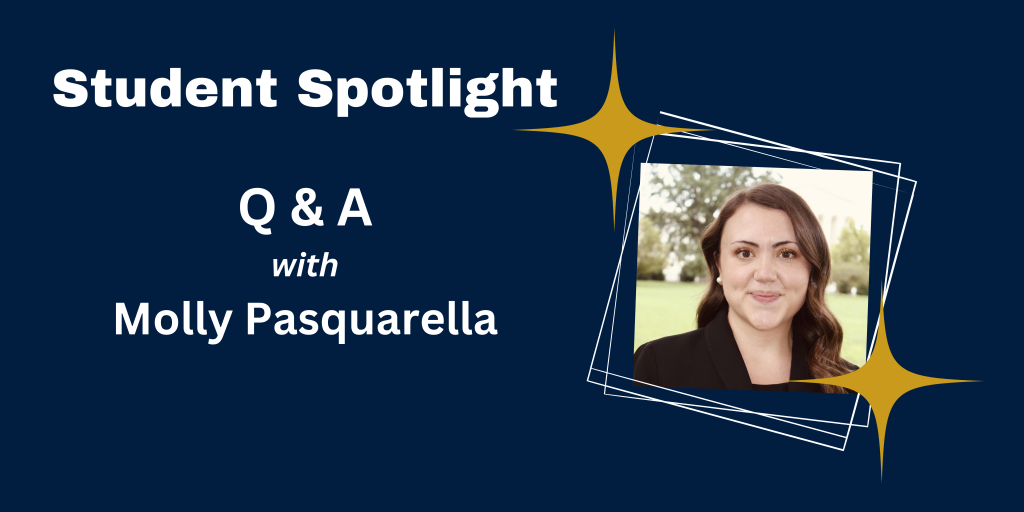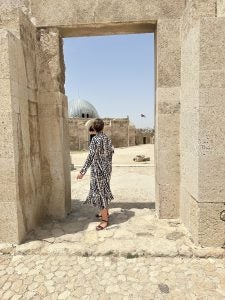
Molly Pasquarella, originally from Centennial, Colorado, will be graduating in May from the Master of Arts in Arab Studies program, after which she will join an elite fellowship at the Department of Energy’s National Nuclear Security Administration (NNSA). The National Graduate Fellowship Program (NFGP) provides fellows with training and practical experience regarding nuclear nonproliferation and energy development, collaboration with state, federal, and international actors, and research on issues related to NNSA’s mission. Molly graduated from Pepperdine University in 2018 with a degree in International Studies, specializing in the Middle East and North Africa. As an undergrad, she helped found a student organization called No Lost Generation, which worked to raise awareness about the Syrian refugee crisis. Following graduation, Molly taught English in Malaysia as a Fulbright fellow and then worked for American Near East Refugee Aid and as a foreign policy staff member in the United States Senate. At the MAAS program, she has focused her research on the impact that climate change is having on refugees and migration patterns in the Middle East. Molly had the opportunity to serve as a research assistant for Professor Marwa Daoudy and worked with her on the report “Climate Change and Regional Instability in the Middle East,” which was published by the Council on Foreign Relations. Molly shares below more about her fellowship and future plans.
How does your upcoming fellowship at the Department of Energy converge with your research interests?
Molly: While at MAAS, I have focused a lot of my research on climate change and environmental politics in the region, and I have also had the opportunity to assist Dr. Daoudy with her research on these topics as well. I am also very interested in the processes that the region is undertaking to respond to the impacts of climate change, including attempts at green energy transitions. While at Georgetown, I have met with several alumni, including at the Department of Energy, and I felt that my interests and the work that the agency does align closely. It is also notoriously hard to make one’s way into government agencies, and fellowships like this one can provide a great pathway to more permanent government work.
What will you be doing as a National Graduate Fellow?
Molly: As a fellow, I will specifically be working under the National Nuclear Security Administration, which is within the Department of Energy. I will have the opportunity to work alongside leading experts throughout the agency on a variety of issues, including those pertaining to nuclear energy and security.

Have you had the chance to spend time in the region during the MAAS program?
Molly: In the summer between the first and second year of MAAS, I had the opportunity to study Arabic at the Sijal Institute in Amman, Jordan. It was a great opportunity to improve my Arabic while also having the chance to understand the impacts that climate change are having on the region firsthand, and the challenges that Jordan is facing regarding energy security.
What are your future career goals?
Molly: In the future, I am hoping to continue to work in the climate change and energy transition space, and specifically as it pertains to Southwest Asia and North Africa.
How do you feel that the MAAS program has prepared you for your next steps in your career?
Molly: MAAS has been most beneficial to me in the ways it has reoriented how I think about the world, and specifically the ways that I understand the relationship between the United States and the SWANA region. Coming from a government and international development background, MAAS has provided me with the tools to think critically about the ways in which the U.S. has engaged with the region in the past, and to think creatively about how these interactions can be different moving forward.